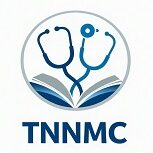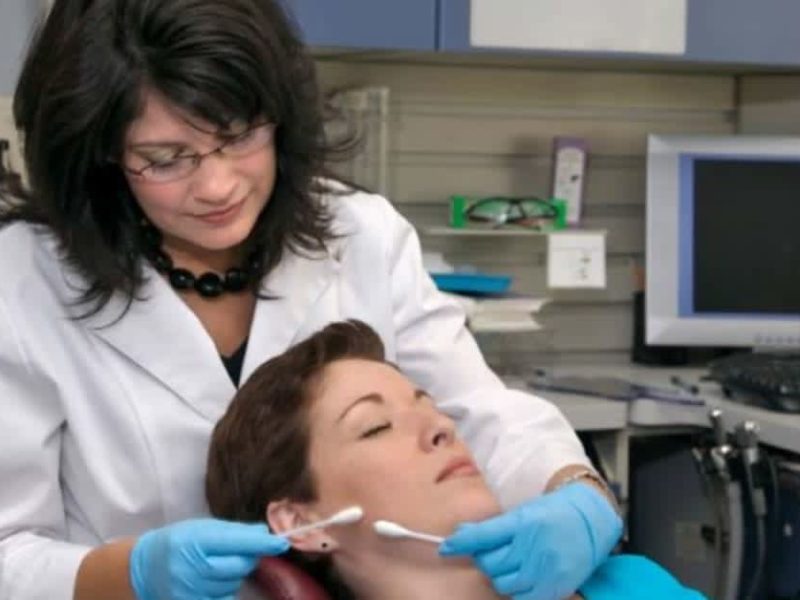Nurses possessing advanced nursing degrees and active licenses may pursue national certification as nurse practitioners (NPs), nurse anesthetists or midwives. Also referred to as advanced practice registered nurses (APRNs), these professionals diagnose patients, perform physical exams, order and interpret lab tests as well as offer counseling services and offer advice and counsel regarding patients and families.
All APRNs must possess at least an MSN degree; master’s-level nursing students often choose an area of advanced nursing practice they find particularly intriguing for specialization purposes.
APRNs coordinate patient care and offer both specialty and primary services, their responsibilities varying by state and workplace. Although nurse midwives, anesthetists and practitioners all fall under this classification of healthcare provider; all three hold very specific responsibilities that serve different patient populations.
On this page, visitors can discover the differences among nurse midwives, nurse practitioners and anesthetists – such as salaries, job duties and career information as well as education/licensing requirements – while discovering all that each profession entails.

What is a Nurse Practitioner?
Nurse practitioners take a holistic approach to healthcare, using their clinical expertise to diagnose and treat various health conditions and injuries. They place a strong emphasis on disease prevention and health management.
Beyond serving as healthcare providers, NPs also take on roles as educators, researchers, mentors, and administrators. Their multidimensional approach not only reduces healthcare costs for patients but also ensures high-quality care and patient counseling. NPs play a key role in helping patients and their families develop effective healthcare plans that promote ongoing health and wellness.
Nurse Practitioner Job Duties
Nurse practitioners (NPs) play an essential part in providing both primary and specialized care to their patients. These healthcare professionals assess individuals to develop tailored plans to enhance or manage medical conditions, injuries or illnesses.
Nurse Practitioners specialize in various patient populations such as pediatrics or gerontology and can have various duties depending on the state of practice, population focus and healthcare setting in which they operate. Our NP career page contains extensive details.
Nurse Practitioner Jobs
Nurse practitioner roles involve serving a diverse patient population with specific responsibilities and scope of practice that vary by specialty area, such as mental health, pediatrics, gerontology or family care. Many nurses begin their specialty journey as Master’s of Science Nursing candidates so that their expertise will translate well post-graduation.
Psychiatric Nurse Practitioner
Psychiatric nurse practitioners assess mental health needs of individuals, families, groups and communities and strive to develop and implement efficient healthcare strategies and therapies for them.
Neonatal Nurse Practitioner
Neonatal nurse practitioners specialize in caring for newborn infants with complex health needs; oftentimes within neonatal intensive units.
Family Nurse Practitioner
Family nurse practitioners provide primary healthcare to individuals of all ages, emphasizing preventative healthcare to assist patients in maintaining optimal health and well-being.
Pediatric Nurse Practitioner
Pediatric nurse practitioners provide care to children from birth through 21 in various settings like physicians’ offices or healthcare clinics.
Nurse Practitioner Salary
Nurse practitioner salaries depend on several factors including geographic location, education level and professional experience; their earning potential also varies based on focus population and workplace factors. Nationally, median annual NP salaries stand at approximately $110,030 with those at the bottom tenth percentile earning around $78,300 annually and those in the 90th percentile enjoying mean salaries around $150,320 each year.
Top-Paying States for Nurse Practitioners
-
- New York: $120,970
-
- California: $133,780
-
- Florida: $111,060
-
- Texas: $101,100
-
- Ohio: $101,970
Source: BLS.gov, 2018
How to Become a Nurse Practitioner
People aspiring to become nurse practitioners (NPs) should carefully consider their education requirements before embarking on this path. First and foremost, prospective NPs need a bachelor of science in nursing degree (BSN). Typically this takes four years of full-time study.
After earning their BSN degrees, graduates may take the National Council Licensure Examination-RN exam to become licensed RNs. Once licensed RNs possess both degrees, they can enroll in MSN programs with specialization tracks that focus on specific patient populations or nursing subfields – for instance family care, neonatology, adult-gerontology or women’s health are just a few examples.
Graduates with an MSN can continue their education by enrolling in the Doctor of Nursing Practice (DNP) degree. Once having obtained both graduate level nursing training and holding valid RN license, DNP candidates are eligible to sit a national certification examination to attain DNP certification.
Nurse Practitioner FAQs
Which Nurse Practitioner Specialty is in Highest Demand?
Opportunities for APRNs are projected to stay robust, with approximately 16,900 positions for nurse practitioners, 3,200 for nurse anesthetists, and 500 for nurse midwives annually.
Can Nurse Practitioners Prescribe Medication?
Depending on state laws, nurse practitioners (NPs) may or may not have the authority to prescribe medication. While some states grant NPs full prescriptive authority, others may mandate a collaborative agreement or direct supervision from a physician.
What’s the Difference Between Nurse Practitioners and Doctors?
Nurse practitioners and doctors follow distinct educational paths. NPs obtain their degrees from nursing school, whereas doctors earn their degrees at medical school and fulfill residency requirements.
What is a Nurse Midwife?
Certified nurse midwives (CNMs) offer a wide range of primary healthcare services for female patients, from adolescence through menopause. This includes family planning and gynecological care, as well as preconception and prenatal counseling, childbirth assistance, and postpartum care for the first 28 days of a baby’s life. With expertise in nursing and midwifery, CNMs hold graduate-level nursing degrees and specialized certifications. While they typically work in physician’s offices or hospitals during regular hours, they also frequently work on call, as well as on nights, weekends, and holidays.
Nurse Midwife Job Duties
Certified nurse midwives (CNMs) often act as women’s primary care providers, overseeing both maternity care and general health. Their wide-ranging responsibilities encompass family planning support, prenatal care, and gynecological exams.
In addition to delivering babies and managing labor and delivery emergencies, CNMs are skilled in repairing lacerations and providing surgical assistance during cesarean births. They also extend their care to the partners of their patients, particularly in matters concerning reproductive or sexual health. Furthermore, CNMs may offer health education with a focus on disease prevention and nutrition.
For those seeking further information on nurse midwife roles, our nurse midwife career page is a valuable resource.
Nurse Midwife Salary
The salary of a nurse midwife varies based on their professional and educational background, as well as their work environment. The annual median salary for nurse midwives nationwide is $103,770. Those in the tenth earning percentile earn an average annual wage of $70,100, while those in the 90th percentile make $151,070 each year.
Top-Paying States for Nurse Midwives
-
- California: $154,500
-
- Minnesota: $121,980
-
- New York: $120,380
-
- Mississippi: $119,640
-
- Maryland: $118,240
Source: BLS.gov, 2018
How to Become a Nurse Midwife
Prospective nurse midwives should first understand the educational requirements for their chosen career. Certified Nurse Midwives (CNMs) are Advanced Practice Registered Nurses (APRNs) and are required to have a Master of Science in Nursing (MSN) or higher. The initial step to becoming a CNM involves obtaining a Bachelor of Science in Nursing (BSN).
Once candidates have earned a bachelor’s degree, they must successfully pass the NCLEX-RN exam to become a Registered Nurse (RN). RNs who have obtained the credential can then pursue enrollment in an MSN program. Some institutions offer MSN candidates the opportunity to specialize in nurse midwifery. Prospective CNMs with an MSN and an active RN license may choose to pursue national certification, while others may opt to further their education by pursuing a Doctor of Nursing Practice (DNP).
Candidates seeking national nurse midwife certification must take and pass the certification exam administered by the American Midwifery Certification Board. To be eligible to sit for the exam, applicants must provide evidence of RN or Nurse Practitioner (NP) licensure, along with transcripts from a graduate program accredited by the Accreditation Commission for Midwifery Education.
Nurse Midwife FAQs
Can Nurse Midwives Prescribe Medication?
Whether or not CNMs can prescribe medication depends on the state they practice in. Each state maintains its own requirements and prescriptive authority guidelines for APRNs.
Can Nurse Midwives Practice Independently?
Individual states also determine the regulations regarding CNM practice. Some states allow nurse midwives to practice independently, while others might require them to sign a collaborative agreement or work under a physician’s direct supervision.
What’s the Difference Between a Nurse Midwife and an OB/GYN?
Nurse midwives and OB/GYNs undergo different types of medical training. OB/GYNs complete medical school and a residency requirement while nurse midwives complete nursing programs. Nurse midwives typically provide more family-centered care and patient education than OB/GYNs, but can not provide all of the same medical services as doctors.
The Best Online Nurse Midwife Programs
What is a Nurse Anesthetist?
Certified Registered Nurse Anesthetists (CRNAs) are advanced practice nurses who administer anesthetics across all practice settings and for various procedures. Typically found in hospitals or outpatient care centers, they maintain full-time schedules, including nights, weekends, and holidays.
Nurse anesthetists play vital roles in surgical and diagnostic procedures, prioritizing patient comfort and safety. In addition to general anesthesia, CRNAs administer local or regional anesthesia to numb specific areas of the body.
Nurse Anesthetist Job Duties
Certified Registered Nurse Anesthetists (CRNAs) administer anesthesia and provide comprehensive patient care before, during, and after various medical procedures, including surgeries, therapies, and obstetrics. They are also capable of delivering emergency services and managing patients’ pain. Prior to any procedure, CRNAs engage with patients to assess allergies, illnesses, and medications that could impact anesthetic administration.
Throughout procedures, CRNAs vigilantly monitor patients’ vital signs, make necessary anesthesia adjustments, and ensure post-surgery comfort. For more insights into the responsibilities of nurse anesthetists, visit this page for additional information.
Nurse Anesthesthetist Salary
Nurse anesthetists command the highest salary in the field, with a median annual wage of $167,950. Those in the tenth earning percentile earn around $116,820, while those in the 90th percentile earn an annual mean wage of $208,000.
Top-Paying States for Nurse Anesthetists
-
- Wyoming: $243,310
-
- Montana: $239,380
-
- Oregon: $234,750
-
- Wisconsin: $233,600
-
- California: $227,290
Source: BLS.gov, 2018
How to Become a Nurse Anesthetist
CRNAs must meet rigorous educational requirements and go through an intensive credentialing process in order to earn certification as CRNAs. To become one, individuals first need a Bachelor’s of Nursing from an accredited program before taking part in the NCLEX-RN exam in order to receive their license before enrolling in an MSN program.
CRNA candidates typically devote one year of work experience in an intensive care unit before enrolling in an approved nurse anesthesiology DNP program. Distance learning opportunities allow CRNA aspirants to complete coursework online as well as fulfill clinical requirements locally.
Individuals who meet the educational criteria for CRNAs can pursue national certification by passing the National Board of Certification and Recertification for Nurse Anesthetists examination. For more information about how to become a nurse anesthetist, readers may find further details here.



